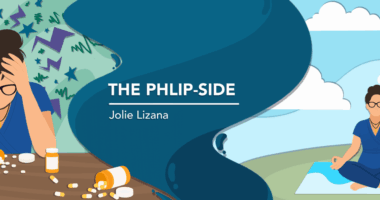Why I Value Emotionally Intelligent Doctors as a PH Patient

After four years of living with pulmonary hypertension (PH), I’ve learned that there are good doctors, bad doctors, and doctors who fall somewhere in between.
I’m lucky to have had mostly positive experiences, but the reality is that doctors who specialize in treating physical illnesses may not always be as emotionally intelligent and sensitive as we’d like. There have been several occasions when I felt a healthcare professional was being too cavalier about delivering medical news.
At one appointment, I gave permission for a trainee to sit in during some routine testing, as I’m all for giving new staff members opportunities to learn. However, I wasn’t prepared for the clinician to describe the state of my heart to the trainee in such technical terms as “severely dilated” and “severely enlarged.” Hearing the gory details about how my heart differs from a healthy heart was disconcerting, and my heart began to race.
I finished the test thinking I must have experienced some serious disease progression. I steeled myself for bad news, only for the clinician to tell me my condition was stable.
I have to remind myself that healthcare workers live and breathe medical abnormality, often seeing patients back to back. What’s potentially a life-altering conversation for me might be the fifth time a clinician has had a similar discussion that day. A disconnect can occur during appointments when a patient is nervous, having spent months worrying about this day, while a healthcare worker is thinking ahead to the next patient they will see in 15 minutes.
Living with chronic illness can have a huge emotional impact, and many PHers struggle with anxiety. But sometimes it feels like medical professionals don’t understand the weight of their words. In an ideal world, all doctors would be sensitive to what we’re going through and be able to provide mental and emotional support during appointments.
Looking back at my diagnosis, I’m often frustrated by how little time was spent discussing the real-life implications of having PH. My team only focused on starting me on medications as soon as possible. While treatment is certainly important, it felt like a whirlwind and left me no time to process. I passionately believe that any doctor delivering a life-changing diagnosis should, at the very least, signpost mental health resources.
I am eternally grateful for my doctors, but problems can arise when we think of them as infallible. We hope they will be deeply compassionate and endlessly knowledgeable about our condition, but the reality is that they are just humans doing their jobs — not to mention they are often overworked. This means patients don’t always receive the sensitivity and emotional support we need.
That said, when we do come across an emotionally intelligent, empathetic doctor who makes time and space for emotions during a consultation, it makes a world of difference and can be wonderfully validating.
Note: Pulmonary Hypertension News is strictly a news and information website about the disease. It does not provide medical advice, diagnosis, or treatment. This content is not intended to be a substitute for professional medical advice, diagnosis, or treatment. Always seek the advice of your physician or other qualified health provider with any questions you may have regarding a medical condition. Never disregard professional medical advice or delay in seeking it because of something you have read on this website. The opinions expressed in this column are not those of Pulmonary Hypertension News or its parent company, Bionews, and are intended to spark discussion about issues pertaining to pulmonary hypertension.









Leave a comment
Fill in the required fields to post. Your email address will not be published.